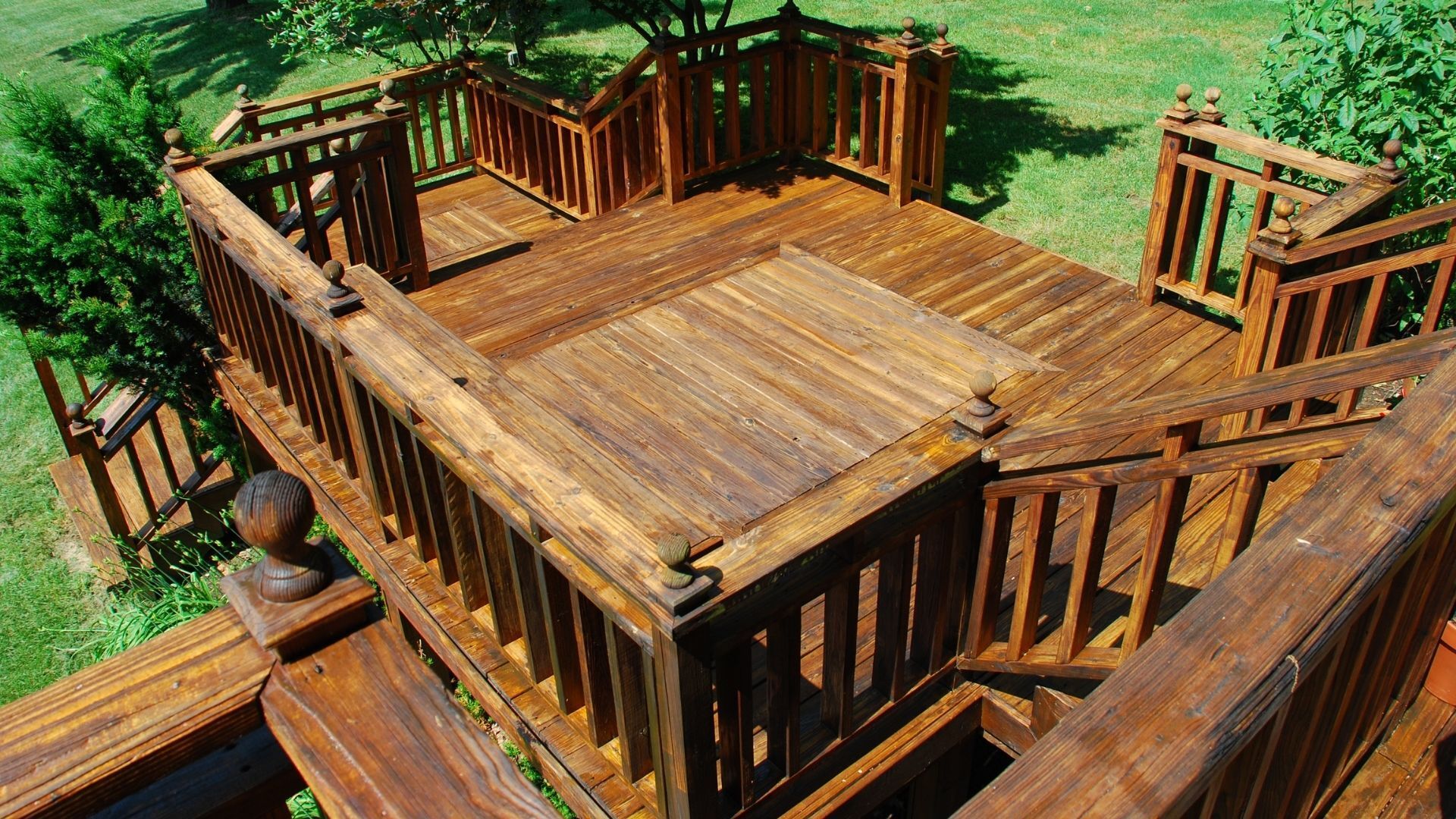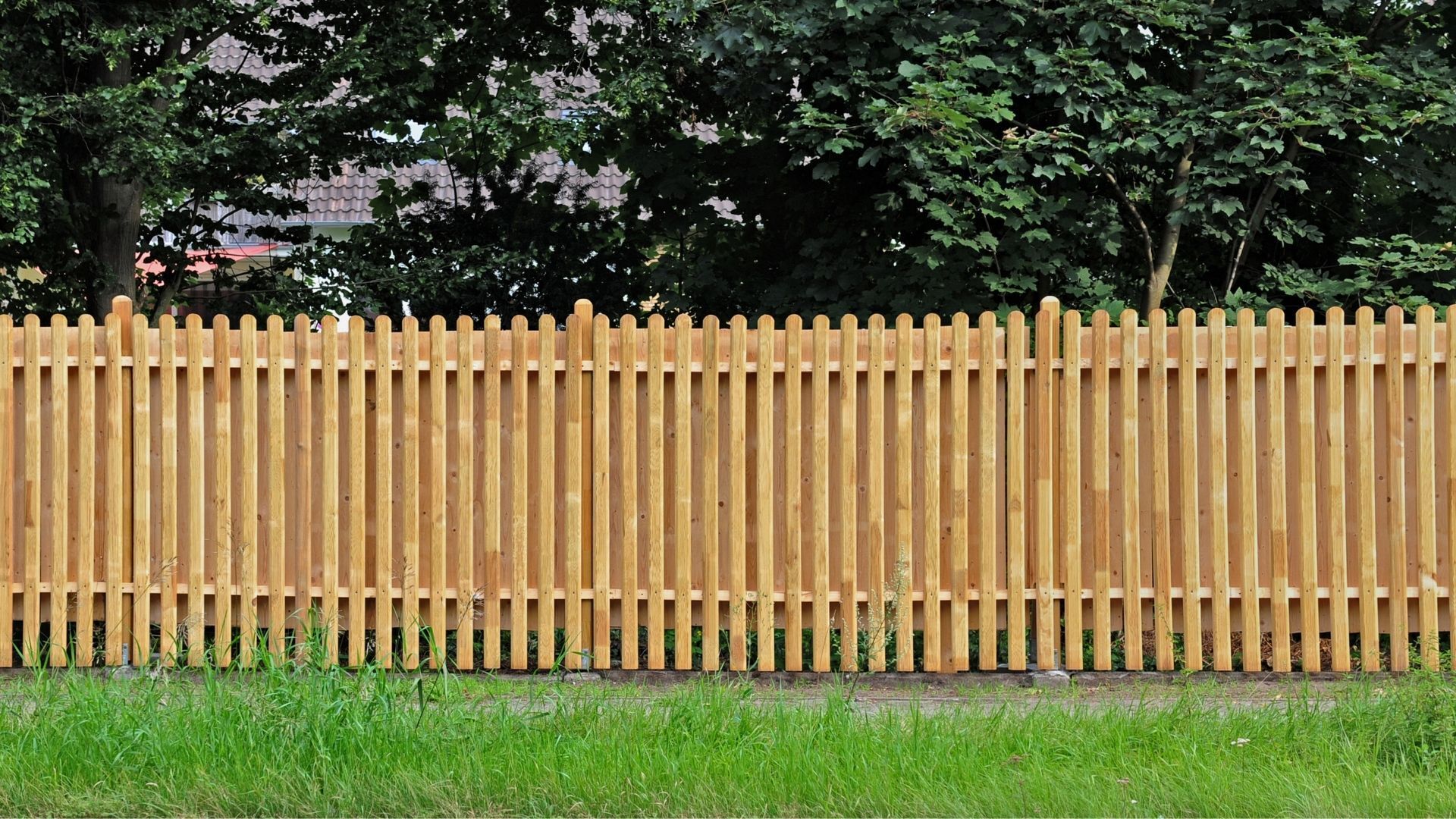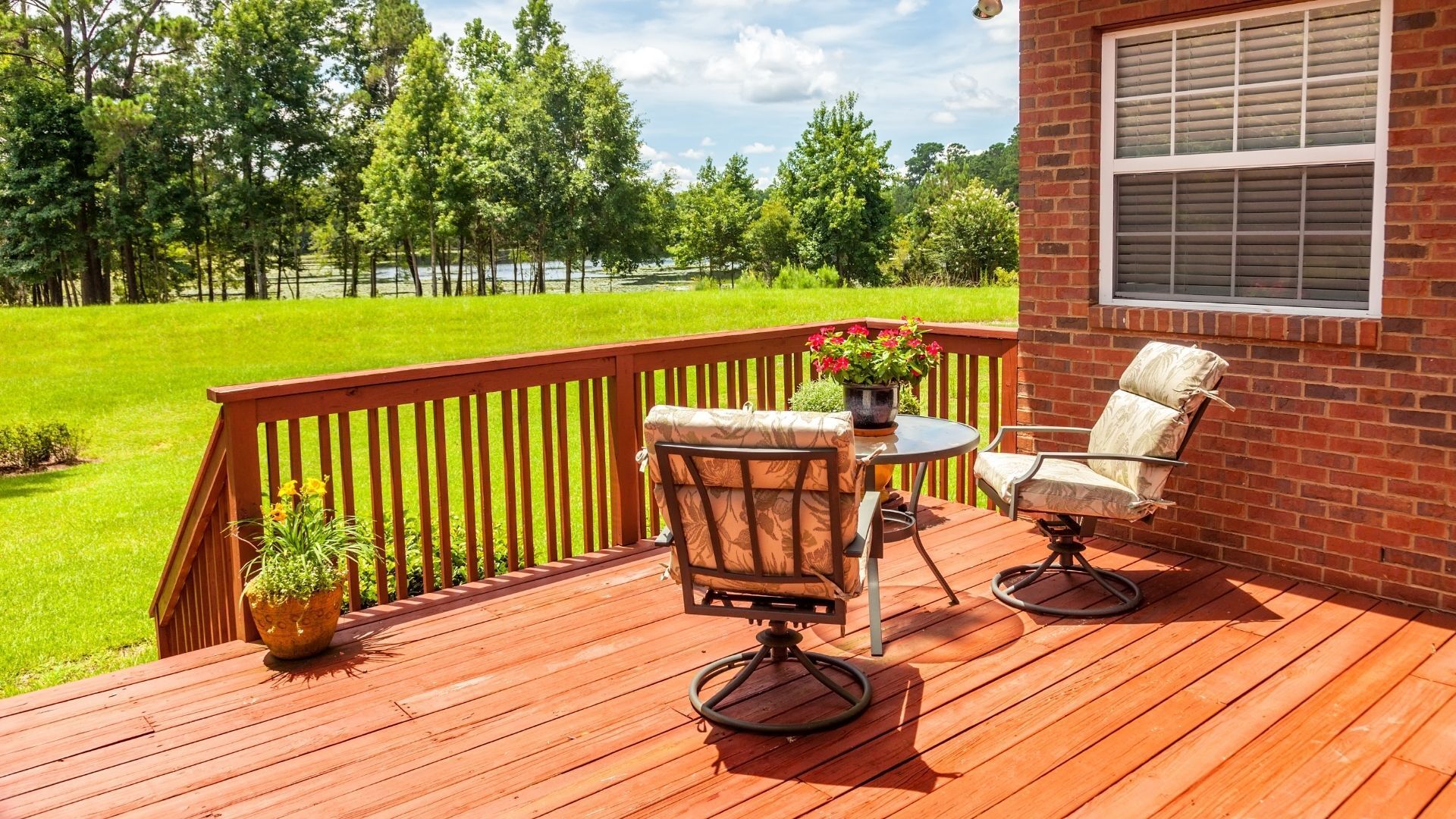Entire Process of Fence Building
Victoria Deck & Fence has been designing and constructing fences using some of the most durable building materials for homes in Victoria, BC, and nearby areas. Our fence contractors specialize in building fences of chain link, steel or aluminum, wood and vinyl. In the eyes of our clients, our output and the way they're installed are of the highest quality. That is why we are considered the only go-to deck builder who can provide high-quality and affordable building services, ensuring your budget is always respected. We only utilize the best materials, including the cleats to secure the fence to the ground and concrete, wood, nails, and other components.
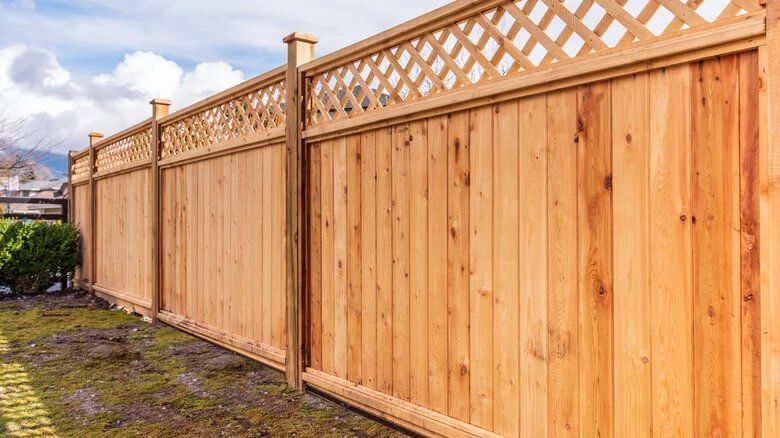
What We Can Offer You
Most people value their sense of privacy and safety to deck builders. You want a reliable fence that provides you with that sense of security while also being durable and long-lasting, which only reliable fence contractors can provide. Our pros are not only experts in building. They can also do maintenance and repair work for all sorts of fences.
Advantages of Fencing a Property
We've been offering our professional building services, Victoria decking, and outdoor patio design throughout Victoria and surrounding areas. What is our winning formula? “Creating a strategy and sticking to it.” This is how we ensure that every customer who visits us has a professional-grade installation that fits their schedule and budget.
- Consultation and estimates are provided for free
- We offer a wide array of options for every budget
- Professional custom fence builders handle project management
- Transparent communication for deck design details and installation date
- Expert fencers with relevant deck installation experiences
- Utility line maps, on-site building materials and permits are all readily available
- Site cleanup after the installation
Residential Fencing Services
Not only are our fences built to last a lifetime, but we also promise to complete your project on time and within budget. Thanks to our skilled project management system. Here are the types of fences our pros can build for you.
Chain Link
If you seek an affordable and long-lasting fencing solution, chain-link fences may be the best choice. While chain-link fences are most commonly used to keep dogs and children in the backyard, they can also provide seclusion by installing PVC privacy slats.
You can rely on Victoria Deck & Fence's decades of experience in designing and constructing various fences. Our fence contractors have a large selection of chain links that are perfect for your needs, and our crew of builders install them with specialist equipment. We can also give you recommendations about the best type for your home based on the climate of the area in which you live. Here are more advantages of chain links.
- Affordable - Compared to the installation cost of other fencing alternatives, chain link is one of the cheapest options. If cost is a significant consideration, this style of fencing is an excellent choice.
- Low Maintenance - It requires very little maintenance if correctly installed. It won't rust or collect dirt because of the galvanized, aluminized, or vinyl covering. The only thing you might have to cut down any plants that have grown on the links.
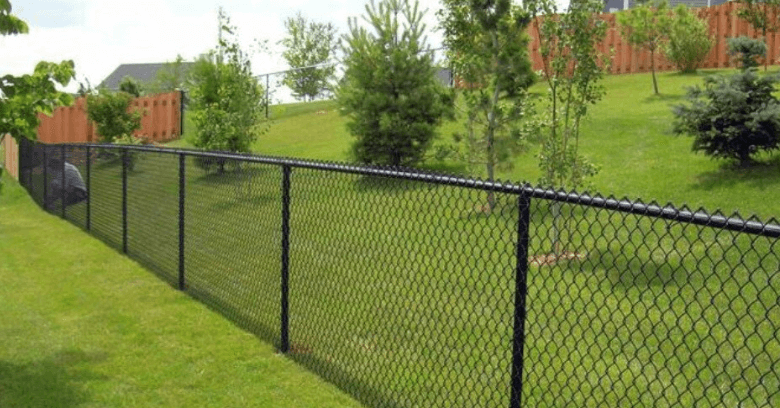
- Quick and Easy Installation - Installing a chain link is much easier and quicker than installing other forms of fencing. If you're on a strict deadline or want your property enclosed as soon as possible, this could be a huge benefit.
- Easy to Repair - If a portion of the fence is damaged by property damage or an accident, it can be readily taken out and replaced. The repair services work will also be undetectable because the coating will be a great fit in appearance to the rest.
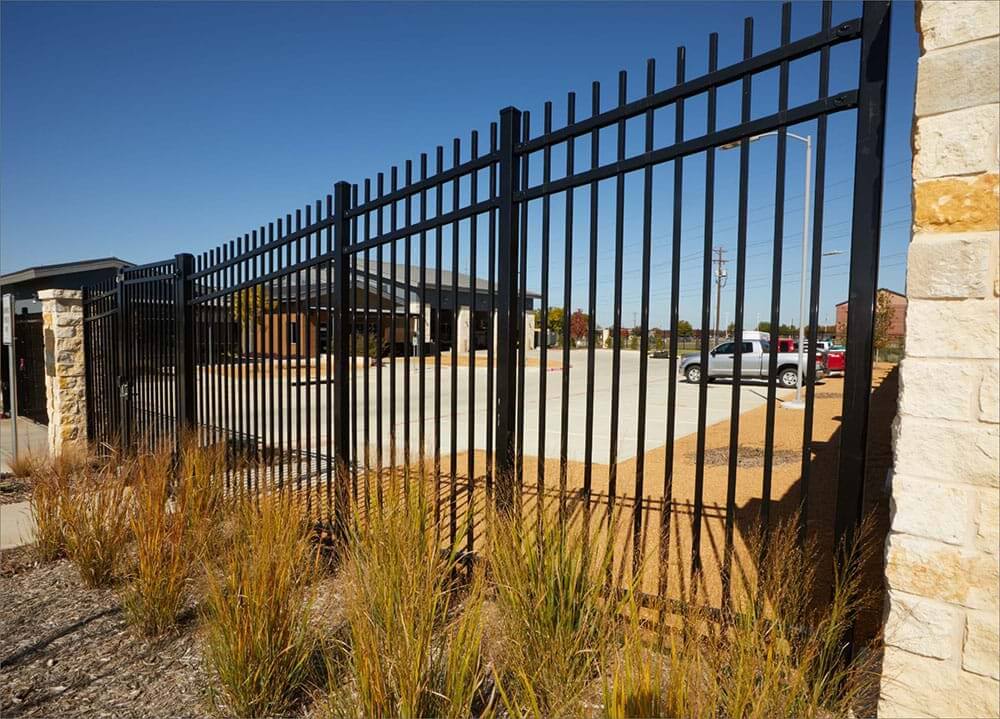
- Highly Customizable - Depending on your unique requirements, aluminum is personalized with a variety of items and is available in a variety of styles and designs (including different colours and heights), hardware (including capping and racks), deck repair and textures (including a vast selection of patterns and texture).
Steel or Aluminum
Steel or aluminum fencing will work well to enclose a home, commercial, or industrial property. It's rugged, dependable, and takes very little upkeep. Here are more advantages of using a steel or aluminum built by a reliable building company.
- Versatile - There aren't longer instances where a lovely yard is utilized to compensate for increased security costs. You may have both protection and an attractive appearance with aluminum or steel. Aluminum or steel fences are among the most popular fence service forms because they can be designed to suit any situation. Victoria Deck and Fence always have something for you regardless of whether your property is flat or uphill.
- Aluminum or steel fences can be used in any environment. To keep your dogs contained, surround your yard with steel or aluminum fencing, close a garden to keep people out, or close your swimming pool pond to avoid accidental drowning.
- Aesthetically Pleasing - Adding aluminum fences to your property might be a visually appealing feature. It's available in several colours and designs to match your home or office. It also mixes in with the surroundings without impeding views.
Vinyl
Vinyl has great curb appeal and the potential to last for an extended period. Additionally, it is completely maintenance-free, and due to its five times the strength of wood, it can resist the test of time and adverse weather conditions.
- Requires Minimal Maintenance - The majority of fence repaired require regular upkeep. Wrought iron, for example, should be examined for corrosion, sanded, and repainted if necessary. Maintenance is time-consuming, and the expenditures may mount up quickly. Plus, wrought iron already has a high price tag.
In terms of how much work it takes to keep vinyl clean. The term "low maintenance" is generally used when describing vinyl. Following your vinyl installation, there isn't much else you need to do to it. Vinyl fencing is available in various colours, eliminating the need for painting and preventing paint from peeling.
- Affordable - Vinyl isn't merely resistant to a variety of abrasions. It also doesn't last indefinitely, with only minor upkeep. Aside from those advantages, one of the significant advantages of a vinyl fence is affordability. Vinyl is a cost-effective material available. Vinyl is an artificial substance; hence it is significantly less expensive to create than wood or steel.
Wood
A good argument for the widespread use of wood fences is that they are durable and attractive wood fencing materials that can be made simple or sophisticated depending on your needs and financial status.
- DIY Painting and Staining - Many people enjoy changing things up every once when it comes to home improvement. By just repainting or staining your wood fence, you may completely transform the look of your yard. Although wood is highly resistant to deterioration, staining or painting it regularly can assist in reducing the number of effects caused by the sun's ultraviolet radiation. Another approach is to leave the wood untreated and let it age independently.
- Environmentally Friendly - Wood is an eco-friendly, all-natural cedar fencing material that uses no chemicals. You can use eco-friendly stabilizers and preservatives to keep the boards from expanding and termite infestation without affecting the soil or groundwater. It's perfectly safe to dismantle and discard your cedar wood once you've finished using it.
- We are dedicated to using high-quality fence materials.
- We provide custom design services.
- No hidden charges or additional expenses.
- We always do the work on time.
We are dedicated to using high-quality materials.
There are no hidden fees or additional expenses.
We provide custom design services.
We always do the work on time.
BOOK YOUR Free QUOTE
To cut down on your waiting time, simply book your appointment online.
Frequently Asked Questions
How far apart should fence posts be?
The majority of fence contractors' posts can be positioned between 8 and 12 feet apart. While this is broad, it does not apply to all situations. For example, a high tensile can have wider spacing, with field designs that require line posts every 15 to 20 feet and high tension smooth and barbed wire requiring line posts every 20 to 30 feet.
How many bags of cement do I need for a fence post?
Typically, one to four bags of concrete is required for each fence post. Like the soil type and how high and wide your fence is, many things affect how much soil you need. According to standard practice, the depth of the post's hole should be 1/3 to 1/2 the elevation of the position above the ground. A six-foot post, for example, should be buried two to three feet deep. This depends on the soil and design. To ensure that your post hole is big enough, it should be three times bigger than your post. You need to drill a 12-inch-diameter post hole if you're using a 4-inch round or 4-inch square post.
A six-foot-tall post with a 4-inch diameter would require a 36-inch-deep by 12-inch-diameter hole. To fill a hole of this size, you'll need five 80-pound bags of concrete, but the volume of the post must be considered. When you include the post, you'll need four bags of cement.
How do you calculate linear feet for a fence?
The width of the new fence should be subtracted from the board overlap, and the result should be divided by its length when creating a board-on-board. Find out how many linear feet of composite fencing material you'll need by multiplying the number of pickets by the height.
What are the post-placement considerations for a vinyl privacy fence on uneven terrain?
Fence contractors use pressure-treated wooden posts for vinyl and ornamental fences, even on uneven terrain. Contractors employ stepsonning techniques. This involves creating tiered levels for the posts using pre-cut lumber or precast concrete blocks. The exact method depends on the slope of the land. We would likely factor in the frost line depth (minimum depth below the surface where the ground won't freeze) to ensure proper post-footing placement.
What gauge wire and post size would be recommended for a chain-link fence on a property with large dogs?
Deck and fence project contractors likely recommend a heavier gauge wire to withstand the impact of large dogs. We suggest 9-gauge or even 8-gauge galvanized steel wire for increased strength. For the posts, a minimum diameter of 2 inches or larger could be recommended, especially if brace bands are considered for additional support against leaning or pushing from the dogs.
I'm interested in a modern steel or aluminum fence. What options are available for panel infill and post caps?
Your new deck and fence repair contractors might offer various options for a modern steel or aluminum fence. For infill panels, you may consider horizontal slats, perforated metal sheets, or even custom laser-cut designs.
Post caps might be finished in sleek metal or with powder-coated paint in a variety of colours to complement the modern aesthetic. We can discuss the possibility of incorporating concrete footings with a smooth trowel finish for a polished look.
I have a wooden privacy fence with existing posts, but the panels are warped and need replacing. What type of wood fence would be most suitable for the new panels, and what fasteners would you recommend for a secure installation?
Our fencing contractors would recommend moisture-resistant wood like a cedar fence or pressure-treated wood for the replacement panels. These woods are better equipped to handle outdoor elements and resist warping.
As for fasteners, we suggest stainless steel screws or hot-dipped galvanized nails for superior corrosion resistance. The specific screw type could depend on the panel thickness - for thinner panels, ring-shank nails might provide a strong grip.
My property slopes downward toward the back. What techniques would Victoria Deck & Fence use to ensure proper drainage for a new concrete block fence?
For a concrete block fence installation on a downward slope, we would likely prioritize proper drainage to prevent water buildup behind the wall. We employ techniques like a gravel footing with a perforated drainpipe installed at the base. The pipe would channel excess water away from the foundation, preventing pressure buildup and potential cracking of the concrete blocks.
I'm considering a wrought iron fence installation for added security. What options are available for post-installation and ornamental details?
Due to their weight, we recommend strong foundations for wrought iron fences. We use embedded metal posts anchored in concrete footings for maximum stability. When it comes to ornamental details, wrought iron offers great flexibility. We can discuss options like scrolls, finials, or custom designs to add a unique persona to your fence installation while maintaining its security purpose.
